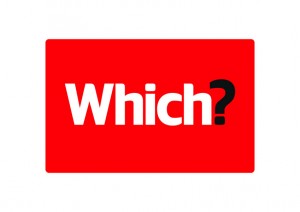Which? ‘Super-complains’ About Misleading Supermarket Pricing Practices

After repeatedly exposing misleading pricing practices in the UK grocery sector, Which? has deployed one of its most powerful legal weapons – a super-complaint – to demand action from the Competition and Markets Authority (CMA).
Over the last seven years Which? has consistently identified a range of misleading and confusing pricing tactics in supermarkets – like dodgy multi-buys, shrinking products and baffling sales offers – that exaggerate discounts. Many retailers are creating the illusion of savings that don’t exist and are manipulating consumer spending by misleading people into choosing products they may not have chosen if they knew the full facts.
About 40% of groceries (by revenue) in Great Britain are currently sold on promotion. With £115 billion spent on groceries and toiletries in 2013, consumers could be collectively losing out to the tune of hundreds of millions of pounds, even if only a very small proportion of offers are misleading.
The pricing practices of concern that Which? has identified are: confusing and misleading special offers; a lack of easily comparable prices because of the way unit pricing is being done; and shrinking pack sizes without any corresponding price reduction.
 In addition, supermarket price match schemes for a basket of goods may also make price comparisons more difficult, as the range and types of products on offer can make accurate price matching impossible to achieve.
In addition, supermarket price match schemes for a basket of goods may also make price comparisons more difficult, as the range and types of products on offer can make accurate price matching impossible to achieve.
The cumulative impact of all these different pricing tactics means it is virtually impossible for people to know if they are getting a fair deal. This is particularly true when prices vary frequently, when consumers are in a rush or they are buying numerous items of relatively low value. Using legal powers under the Enterprise Act 2002, Which? has made the first super-complaint to the CMA, urging it to take action.
Which? executive director, Richard Lloyd, says: “Despite Which? repeatedly exposing misleading and confusing pricing tactics, and calling for voluntary change by the retailers, these dodgy offers remain on numerous supermarket shelves. Shoppers think they’re getting a bargain but in reality it’s impossible for any consumer to know if they’re genuinely getting a fair deal. We’re saying enough is enough and using one of the most powerful legal weapons in our armoury to act on behalf of consumers by launching a super-complaint to the regulator. We want an end to misleading pricing tactics and for all retailers to use fair pricing that people can trust.”
Once Which? has submitted its super-complaint to the CMA, the regulator has 90 days to respond. Which? last issued a super-complaint in June 2011, when it asked the Office of Fair Trading to investigate excessive credit and debit card surcharges.


































